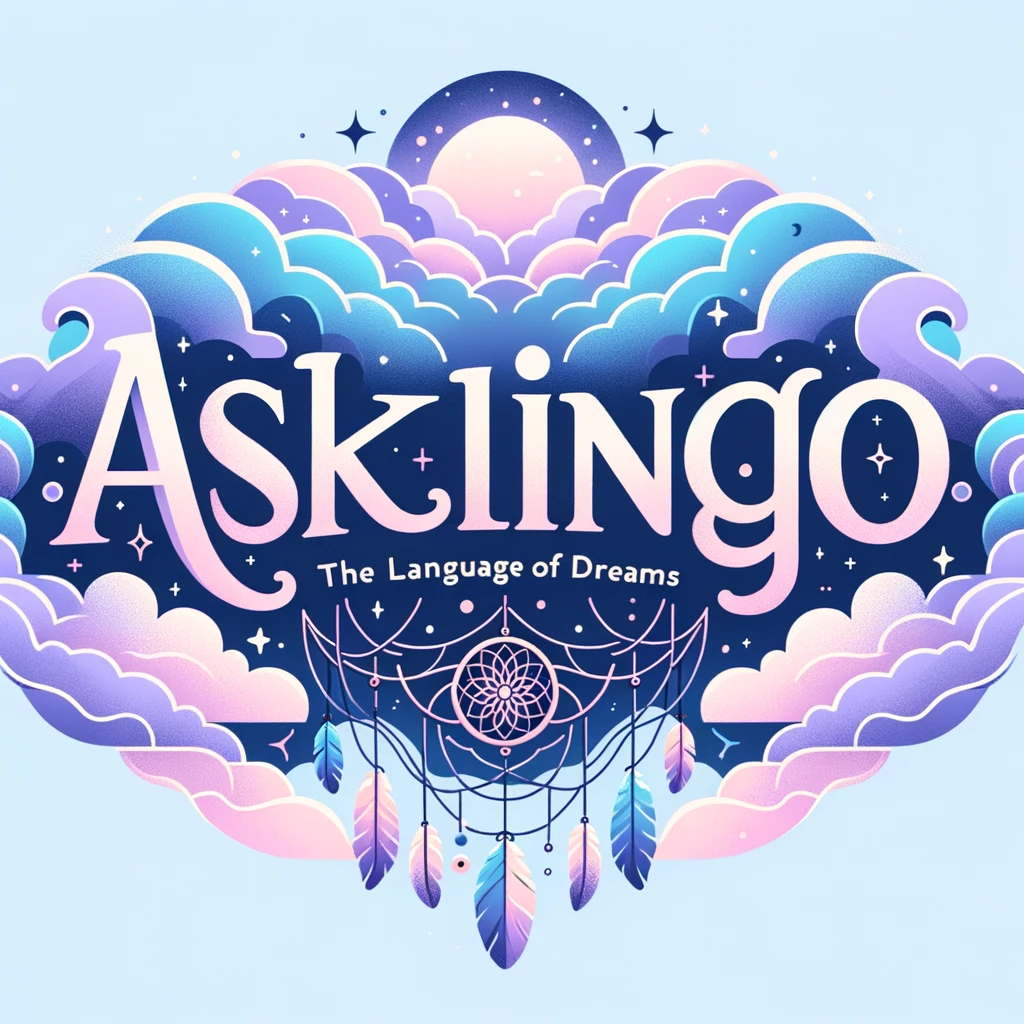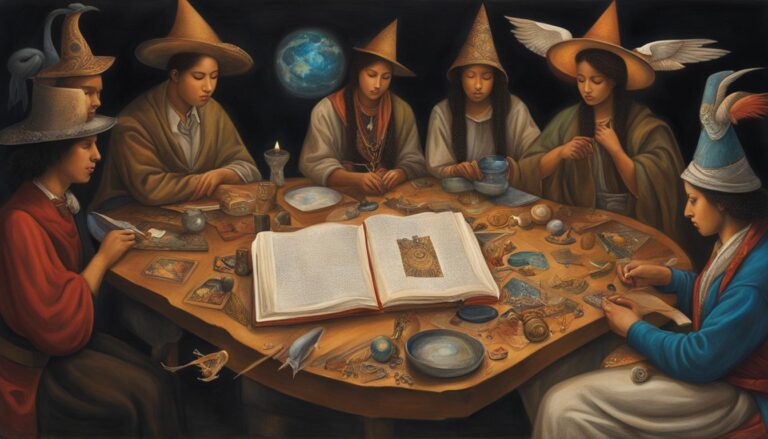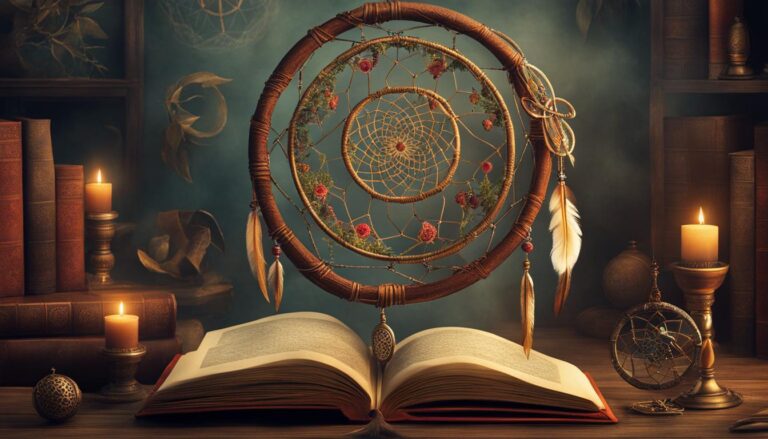Utilizing Dream Sharing for Self-Discovery and Transformation
Dream communities have emerged as a powerful platform for dreamers to connect, share, and explore the depths of their subconscious. By actively participating in dream sharing, individuals can embark on a journey of self-discovery and transformation. Dream interpretation and analysis within these communities offer valuable insights, diverse perspectives, and a wealth of resources to deepen one’s understanding of their dreams.
Key Takeaways:
- Online dream communities provide a platform for personal growth through dream sharing.
- Engaging with dreamers in these communities offers diverse interpretations of dreams.
- Dream resources within these communities contribute to a deeper understanding of dream symbols.
- Actively participating in dream sharing can lead to profound self-discovery and transformation.
- Utilizing dream community platforms provides opportunities for personal growth and exploration.
The Significance of Dreams in Personal Growth
Carl Jung, a renowned Swiss psychiatrist and psychoanalyst, has contributed significantly to the field of dream analysis and the understanding of dreams in personal growth. According to Jung, dreams play a vital role in the exploration of the unconscious mind and offer valuable insights into one’s inner world. His theories on the significance of dreams center around the concept of the collective unconscious, which is a reservoir of shared experiences, symbols, and archetypes that exist beyond individual consciousness.
The collective unconscious, as proposed by Jung, holds universal symbols and archetypes that are present in the dreams of individuals. These symbols carry inherent meanings that are rooted in the collective human experience. By interpreting these symbols and understanding their personal significance, individuals can gain a deeper understanding of their unconscious beliefs, desires, and emotions.
Through dream analysis and interpretation, individuals can uncover the hidden messages and guidance that dreams provide. Dreams often reflect underlying conflicts, desires, and unresolved issues, presenting an opportunity for self-reflection and personal growth. By engaging with dream symbols, exploring their relevance to one’s own life, and integrating their wisdom into waking life, individuals can embark on a transformative journey towards self-discovery and personal development.
Understanding the Collective Unconscious and Dream Symbols
The collective unconscious is a fascinating and enigmatic aspect of our psyche. It is a hidden landscape that holds ancient myths, symbols, and universal patterns. This vast reservoir of knowledge and wisdom is accessible to us through our dreams. When we dream, the collective unconscious speaks to us, conveying its messages through symbols and archetypes.
These symbols and archetypes draw from personal experiences combined with the collective unconscious, creating a unique language that speaks directly to our subconscious mind. By deciphering these symbols and archetypes, we can gain a deeper understanding of ourselves and our place in the world.
Interpreting dream symbols can be both intriguing and challenging. Each symbol carries its own meaning, but it can also vary depending on the individual’s personal experiences and associations. It’s important to approach dream interpretation with an open mind and a willingness to explore multiple layers of meaning. Engaging with dream symbols can reveal insights into our deepest desires, fears, and aspirations, leading to personal growth and self-discovery.
The exploration of the collective unconscious and dream symbols is a journey of self-reflection and exploration. It allows us to tap into the universal patterns that shape our lives and gain a greater understanding of the mysteries that lie within us. By embracing the symbolism of our dreams, we open ourselves to a world of insight and transformation.

Exploring Mutual Dreaming and Its Spiritual Meaning
Mutual dreaming, a remarkable phenomenon, occurs when two or more individuals share the same dream. It serves as a powerful symbol of deep spiritual connection and understanding between the dreamers. Mutual dreaming goes beyond ordinary dreams, reflecting a profound emotional bond or shared destiny. This extraordinary experience highlights the interconnectedness of human consciousness and offers a glimpse into the mystical aspects of the dream realm.

Mutual dreaming can be seen as a psychic phenomenon, transcending the boundaries of physical reality. It raises intriguing questions about the nature of consciousness and the significance of synchronicity in our lives. The experience of shared dreams suggests that our souls are interconnected, and that we are part of a greater cosmic tapestry. It can also serve as a catalyst for spiritual growth, providing profound insights and guidance on our individual and collective journeys.
The Significance of Soul Mates in Mutual Dreaming
“In mutual dreaming, the presence of soul mates often becomes evident, deepening the connection and revealing shared spiritual purpose.”
Soul mates, those extraordinary beings with whom we share a deep and profound soul connection, often play a significant role in mutual dreaming. These encounters can signify a soul contract or shared spiritual purpose between dreamers. Through mutual dreaming, soul mates can communicate on a soul level, transcending the limitations of physical reality. It is a powerful reminder of the interconnectedness of souls and the expansive nature of our spiritual existence.
Mutual dreaming holds immense potential for spiritual growth and transformation. It allows us to explore the depth of our consciousness, connect with like-minded souls, and gain profound insights into our own spiritual journeys. By embracing the magic of mutual dreaming, we open ourselves up to a world of spiritual possibilities, where synchronicity guides us and the power of our dreams leads us toward personal and collective evolution.
The Spiritual Significance of Mutual Dreaming
Mutual dreaming carries great spiritual meaning, representing a profound connection and understanding between the individuals involved. It signifies a unique bond that transcends the boundaries of the physical world, indicating a shared spiritual journey or purpose. The experience of mutual dreaming often involves a sense of synchronicity, where the dreams align in theme, symbolism, or events, further emphasizing the deep connection between the dreamers.
One of the possible interpretations of mutual dreaming is the presence of soul mates. Soul mates are believed to share a deep spiritual connection, and their encounter in the dream realm can signify their alignment in the spiritual realm as well. Mutual dreaming can also serve as a tool for spiritual growth and personal development. Through this shared experience, individuals may receive guidance, insights, and lessons that contribute to their spiritual evolution.
The healing potential of mutual dreaming should not be overlooked either. It can provide a space for emotional healing and transformation, allowing individuals to process deep-seated emotions, heal unresolved wounds, and find inner peace. Mutual dreaming can act as a catalyst for personal and spiritual transformation, helping individuals align with their higher selves and live a more purposeful and fulfilling life.

The Power of Connection and Guidance
Mutual dreaming represents a profound connection between individuals, highlighting the inherent interconnectedness of all beings. It reminds us that we are part of something greater and that our existence is intricately woven into the fabric of the universe. This connection can bring a sense of unity, love, and support, providing solace and comfort during life’s challenges.
Furthermore, mutual dreaming can offer guidance and insights that may not be readily available in our waking lives. Dreams are a doorway to the subconscious mind, where our intuition and inner wisdom reside. By exploring and interpreting mutual dreams, we can tap into this vast well of knowledge and receive guidance that can help us navigate our lives with greater clarity and purpose.
“Mutual dreaming represents a profound connection between individuals, highlighting the inherent interconnectedness of all beings.”
Embracing the Transformative Power
Engaging in mutual dreaming and acknowledging its spiritual significance opens up a world of possibilities for personal growth and transformation. By cultivating an awareness of our dreams and actively seeking connections with others in the dream realm, we can harness the transformative power that lies within this extraordinary experience.
Whether it is through the exploration of soul connections, the reception of guidance and insight, or the healing and transformational potential, mutual dreaming invites us to embrace the profound spiritual aspect of our dreams. It encourages us to dive deeper into our subconscious and unlock the wisdom and magic that resides within.
The Practice of Dream Journaling for Self-Reflection
Keeping a dream journal is a powerful tool for self-reflection and self-discovery. By maintaining a record of your dreams, you create a bridge between your conscious and subconscious mind, gaining valuable insights and understanding of yourself. Dream journaling allows you to explore the hidden depths of your psyche, unraveling the symbolism and meaning behind your dreams.
One of the main benefits of dream journaling is improved dream recall. By writing down your dreams immediately upon waking, you train your mind to remember more details as you become more attuned to your dream experiences. This enhanced dream recall opens the door to deeper exploration and analysis of your dreams.
“Dreams are the touchstones of our characters.” – Henry David Thoreau
Engaging in dream journaling also supports emotional processing and problem-solving. Your dreams often reflect your emotions and internal conflicts, providing a safe space to unpack and process these feelings. By writing about your dreams and reflecting on their emotional content, you gain greater self-awareness and a clearer understanding of your inner landscape.

Dream journaling is also a creative outlet that can spark inspiration and innovation. Dreams are a wellspring of imagination, presenting unique and unconventional ideas. By capturing the imagery and themes of your dreams in your journal, you tap into this source of creativity and harness it for personal growth and problem-solving in your waking life.
Different Theories on Dream Significance and Symbolism
When it comes to understanding dreams, various theories have been proposed over the years. These theories provide different perspectives on the significance and symbolism of our dreams, shedding light on the complex nature of the dreaming mind.
One of the most well-known theories is the psychoanalytic theory by Sigmund Freud. According to Freud, dreams are a pathway to the unconscious mind, revealing our hidden desires, fears, and conflicts. Dreams serve as a way for our unconscious thoughts to express themselves through symbols and imagery. Freud believed that by analyzing these symbols, we can gain insight into our innermost thoughts and emotions.
“Dreams are the royal road to the unconscious.”
Another influential theory is Carl Jung’s archetypal theory. Jung proposed that dreams contain universal symbols and archetypes that are inherited and shared among all humans. These symbols represent deep, primal aspects of the human psyche and reflect our collective unconscious. By understanding and interpreting these archetypal symbols, we can uncover important insights about ourselves and the world around us.
The cognitive theory takes a different approach, viewing dreams as a reflection of our cognitive processes. According to this theory, dreams serve a purpose in problem-solving, memory consolidation, and emotional regulation. Dreams provide a space for the brain to process and integrate information from our waking life, allowing us to make connections and come up with creative solutions.
Theories on Dream Significance and Symbolism:
- Psychoanalytic theory by Sigmund Freud
- Archetypal theory by Carl Jung
- Cognitive theory
Another perspective is cultural theory, which emphasizes how cultural factors influence dream symbols and meanings. Dreams can be shaped by our cultural beliefs, values, and experiences, resulting in unique interpretations for different individuals and societies.
The activation-synthesis theory offers a different explanation for dreams, suggesting that they are the result of random neural activity in the brain. According to this theory, the brain tries to make sense of these random signals by synthesizing them into coherent narratives, creating the stories we experience in our dreams.
In summary, these different theories on dream significance and symbolism provide us with diverse frameworks for understanding the complexities of our dreams. While each theory offers unique insights, there is no universal interpretation for all dream symbols. The meaning of dreams remains subjective and personal, requiring individual exploration and interpretation.
Benefits of Keeping a Dream Journal
Keeping a dream journal offers numerous benefits for personal growth and self-awareness. By recording and reflecting on your dreams, you can unlock the hidden messages of your subconscious mind and gain valuable insights into your inner world.
Enhanced Dream Recall
One of the primary benefits of keeping a dream journal is improved dream recall. By writing down your dreams immediately upon waking up, you train your mind to remember more details. This heightened dream recall allows you to delve deeper into the symbolism and meaning behind your dreams, bringing them to the forefront of your conscious awareness.
Self-Awareness and Emotional Processing
A dream journal serves as a tool for self-reflection, enabling you to explore your thoughts, emotions, and experiences on a deeper level. By analyzing the themes, symbols, and patterns in your dreams, you can gain insights into your subconscious desires, fears, and unresolved emotions. This self-awareness promotes personal growth and empowers you to address and process any emotional challenges you may be facing.
Creativity and Problem-Solving
Dreams are a rich source of creativity and innovative ideas. By keeping a dream journal, you can capture these imaginative insights and use them to fuel your creative endeavors. Additionally, dreams often present solutions to problems we may be grappling with in our waking lives. By paying attention to the messages your dreams hold, you can tap into your subconscious problem-solving abilities and find new perspectives or approaches to challenging situations.
In summary, maintaining a dream journal provides a powerful means of exploring the depths of your subconscious mind. It enhances dream recall, promotes self-awareness and emotional processing, and nurtures creativity and problem-solving skills. Through the practice of dream journaling, you can embark on a transformative journey of self-discovery and unlock the mysteries of your own mind.
Tips for Dream Journaling
Dream journaling is a powerful practice that can deepen your understanding of your dreams and yourself. Here are some tips to enhance your dream journaling experience:
- Set aside dedicated time each morning: Allocate a specific time in the morning to write in your dream journal. This helps you capture the details of your dreams while they are still fresh in your mind.
- Use a dream journal template: Consider using a dream journal template to structure your entries. This can include sections to note the date, dream description, emotions felt, and any symbols or themes that stood out to you.
- Utilize dream journal prompts: Experiment with dream journal prompts to inspire deeper reflection. Prompts can include questions like “What emotions did you experience in the dream?” or “What do you think the symbols in your dream represent?” These prompts can help you explore your dreams from different angles.
- Keep your journal and pen near your bed: Place your dream journal and a pen within easy reach of your bed. This way, when you wake up from a dream, you can quickly jot down the details before they fade away.
By incorporating these tips into your dream journaling practice, you can make the most out of your exploration of the dream world and gain valuable insights into your subconscious mind.
Cultivating a Deeper Understanding Through Dream Journaling
Dream journaling is a powerful practice that allows for self-reflection and personal growth. By capturing the details of our dreams and exploring their symbolism, we can gain a deeper understanding of ourselves and our subconscious mind. Dream journaling offers numerous benefits, such as enhancing self-awareness, promoting emotional processing, and fostering creativity.
Keeping a dream journal enables us to delve into the rich tapestry of our dream experiences. By recording our dreams, we create a valuable resource for self-reflection and exploration. Identifying recurring patterns and themes in our dreams can provide insights into our subconscious desires, fears, and aspirations. It allows us to connect the dots between our dreams and our waking lives, facilitating personal growth and transformation.
Exploring the symbolism in our dreams is another crucial aspect of dream journaling. Symbols in dreams often have personal meanings that only we can decipher. By documenting these symbols and their associated emotions or experiences, we can uncover hidden aspects of our psyche. Dream symbolism serves as a gateway to the depths of our subconscious mind, enabling us to gain valuable insights and guidance for our personal growth journey.
Embracing the Power of Dreams for Personal Transformation
Understanding and harnessing the power of dreams can be a transformative experience on the path of personal growth and self-discovery. Dreams serve as a gateway to the subconscious mind, providing invaluable insights into our deepest desires, fears, and aspirations. By embracing dream interpretation tools and utilizing dream resources, we can unlock the hidden potential within our dreams and embark on a journey of self-improvement.
Dreams offer a unique opportunity for self-discovery. They often contain symbolic messages that reflect our innermost thoughts and emotions. By analyzing these symbols and deciphering their meaning, we gain a deeper understanding of ourselves and our life’s purpose. Dream interpretation tools, such as dream dictionaries and online dream communities, can provide guidance in unraveling the mysteries of our dreams.
When we actively engage in dream exploration and interpretation, we open ourselves up to personal transformation. Dreams can illuminate unresolved issues or patterns in our lives, offering us the chance to address them and grow. By harnessing the power of our dreams, we can tap into our subconscious wisdom and make positive changes in our waking life. Through self-reflection and the application of dream interpretation tools and resources, we can unlock the transformative potential of our dreams, creating a more fulfilling and purpose-driven existence.
In conclusion, dreams are a powerful tool for personal transformation. By harnessing the power of dreams, embracing self-discovery, and utilizing dream interpretation tools and resources, we can embark on a profound journey of self-improvement. Through the exploration and interpretation of our dreams, we gain valuable insights, tap into our subconscious wisdom, and create positive changes in our waking life. So, let us embrace the power of dreams and unlock the transformative potential within us.







